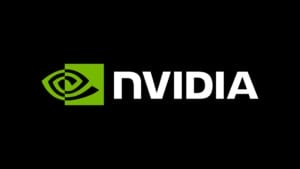The future of start-up investment: Post COVID-19
With the ongoing coronavirus pandemic and the exacerbation of the economic recession, start-up companies are faced with the reality that securing investments post-COVID-19 might just be more...

With the ongoing coronavirus pandemic and the exacerbation of the economic recession, start-up companies are faced with the reality that securing investments post-COVID-19 might just be more difficult than it was pre-COVID-19.
Table Of Content
The good news is, there are still investors who are on the look-out for new business opportunities despite the economic downfall. With low valuations and lesser competition for deals, the best time for investors to strike is now – at the dip of the depression and onto the early stages of economic recovery. This has proven a good investment strategy for investors as seen in the 2008 recession where countless VC-backed businesses such as WhatsApp and Instagram were born and are highly valued today. However, what was considered a viable business plan pre-COVID-19 might no longer be viable in the turbulent times today. There will be increased scrutiny among investors and start-ups must increase their due diligence and prove to investors that they have what it takes. Here are some tips on how:
The product
Start-ups need to look to produce a product or solution that solves an existing problem. The product must be both viable and bold to stand out from the rest of the incumbent competition and have the potential for growth in the current condition of the market. Regardless of investors, start-ups should continuously build on their product for continual progression and customer traction. Welcome feedback through customer reviews and keep track of the results. This not only aids start-ups in better understanding the concerns of their customers but helps in the process of improvement. Furthermore, it also demonstrates a start-up’s commitment to their business to investors.
Market approach
With the turbulent climate today, scalability is key. Having a solid go-to-market plan on how to acquire customers in a cost-efficient manner would be ideal. Scalability is defined by comparing the cost invested in acquiring customers against the potential revenue generated by them.
For example, business A uses an online software to acquire customers. Since work-from-home began, the site began receiving a ton of traction and the software is struggling to cope with the traffic. Scalability would mean adding additional equipment to help support the traffic as opposed to redoing the entire framework of the software to cater to the new demands which would be more costly.
It is important to have strong product management to adapt to the changing times, accommodate to demands and remain viable. Not to mention, investors will pay attention to how a start-up manages its technical resources, if it’s in-house or outsourced, as it does help determine a business’ adaptability and profitability.
The founders
Investors will be looking for founders who are confident in their ability to maintain viability and profitability even in changing times such as a pandemic or an economic recession. Not only will investors look for a team who wields the operational skills and experience needed to grow the business and understands the competitive edge that they have, but also a team with solid motivations. Helping an investor understand the motivations behind a team can help build confidence in a start-up’s commitment towards the business.
It is good practice for founders to constantly review, refine and renegotiate plans to maintain effectivity and efficiency in supporting the changing demands. For example, financial plans. Start-ups will need to have a clear and succinct plan that illustrates their financial projection and ensure that resources are being effectively utilised. This helps to assure investors that their money will be spent wisely and help gain their confidence in the business. Most importantly, a start-up must never be self-deserving. Devise a projection of sorts that allows the investor to understand what they will gain from investing, how so and when.
With all that being said, start-ups will need to prove to investors that they have what it takes to weather the obstacles posed by the uncertain economy, operationalise their plans, reduce and mitigate the risks and challenges, and most importantly, capture and defend the market shares. Start-ups will need to provide a sightline and a course of concrete actions on how to deliver on these areas. This will help the investor build trust and confidence in the business and the team, enough to invest and take a chance, which is all anyone is asking for.
















